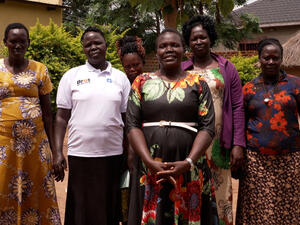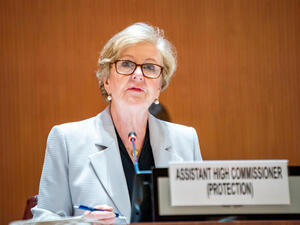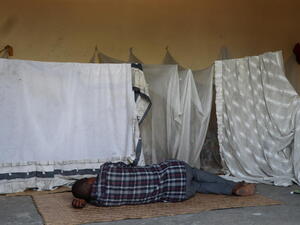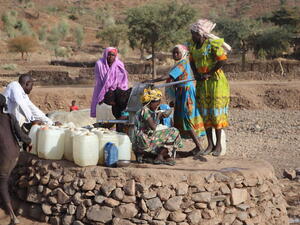New 'Protection Desks' give expert help to South Sudan's vulnerable
New 'Protection Desks' give expert help to South Sudan's vulnerable
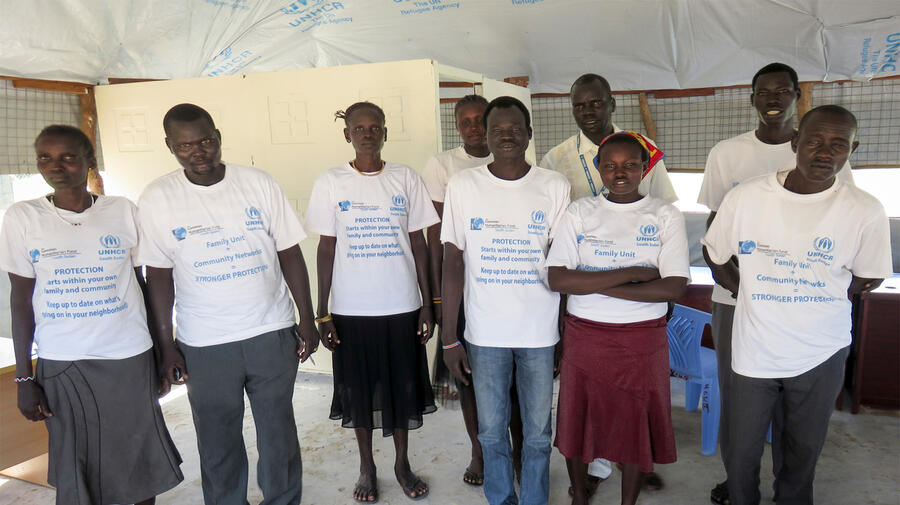
Community outreach volunteers gather inside UNHCR's Protection Desk at the Protection of Civilians site in Bor, South Sudan's Jonglei State.
JUBA, South Sudan – Taphisa Nyaboul felt she had nowhere to turn for help after her husband was killed, leaving her a widow with four children living in a temporary camp for people displaced by South Sudan's war.
She sold home-brewed alcohol to put food on the table, but the business never took off. "I had few customers and no revenue," said Nyaboul, 23. "I ended up drinking my own spirits out of desperation. After one too many drinks, I would easily get into an argument over small things and fight with people."
Her worries mounted, she said: "I could not imagine a future for my children and myself. I did not even have money to feed them or buy them clothes."
Nyaboul was lucky. Volunteers working among the community where she lived in a site for displaced people outside the town of Bor found her, and saw she was exactly the kind of vulnerable single mother that UNHCR, the UN Refugee Agency, trained them to spot.
They immediately scheduled an appointment for her with UNHCR's Protection Desk at the camp, at a UN peacekeepers' base in Bor and known as a Protection of Civilians (POC) site. Protection Desks, available in most POC sites in South Sudan, offer tailored advice and assistance to especially vulnerable people.
Close to 7,000 South Sudanese internally displaced people (IDPs) have approached or been referred to the Protection Desks since they opened earlier in 2016. They include single mothers looking after their families alone, pregnant women with no family support, unaccompanied children and those separated from their parents or guardians, survivors of sexual and gender-based violence, people with disabilities, and the elderly.
"Nyaboul was desperate when she came to see me," said Godfrey Komma Andrugaa from the Bor Protection Desk. "Her worries were consuming her. She couldn't see anything positive in her life. I don't blame her. In her shoes, anyone would face similar challenges."
He described Protection Desks as safe and judgment-free spaces where people can vent feelings and frustrations. "Sometimes the solution to people's problems is bigger than what we can offer, but it's important to listen to them," he said. "In most cases, the answer is at our fingertips."
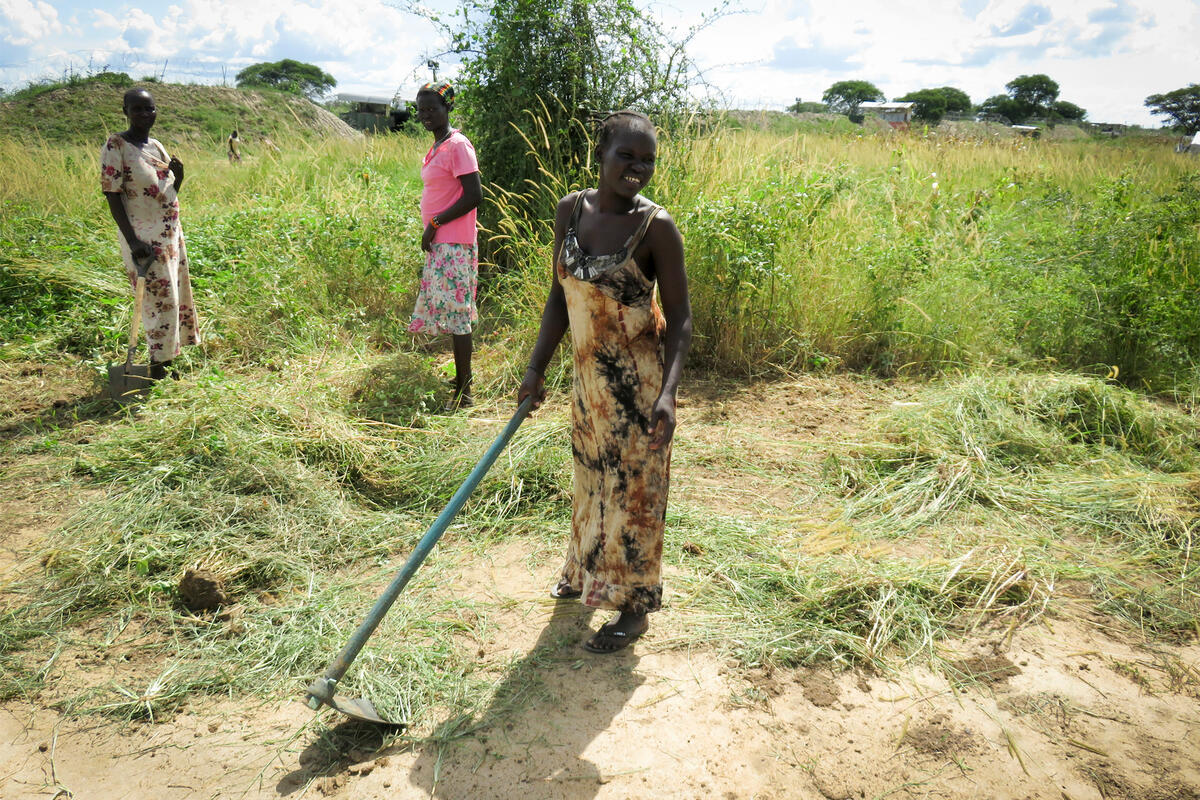
Taphisa Nyaboul, 23, removes grass and weed from a field at the Protection of Civilians site in Bor, South Sudan's Jonglei State.
Andrugaa's team offered Nyaboul psychosocial counselling, and helped her find a job with a UNHCR partner organization. "It's casual work. It's not big money, but it's enough to provide for my children," Nyaboul said. "I don't drink anymore. There are too many reasons to be sad in this country, but I feel much stronger now."
UNHCR launched the first Protection Desks in Bor and Malakal in January, followed by Juba in February, and then Bentiu in March.
"Protection Desks are invaluable assets to identify the most vulnerable individuals and devise a response specific to their needs," said Isabelle Misic, UNHCR's Assistant Representative on protection matters in South Sudan. "They put individuals at the heart of our protection activities, while also serving as a gateway to the community to help us analyse underlining issues and patterns that affect the population at large. Community engagement and feedback are critical, especially in finding ways to mitigate protection risks."
The Bor Protection Desk has worked on a variety of cases. They helped 206 displaced people go home to their families earlier in the year, counselling them and giving grants to get them back on their feet.
The outreach team also found Stephen Bang, a 46-year-old disabled IDP whose adapted wheelchair had broken down, leaving him confined to his tent with its bed and few household items. They brought his case to the Protection Desk, and within 24 hours UNHCR sourced spare parts and repaired the wheelchair.
"I am so grateful for this," said Bang. "It was tough for me. My social life depends on that machine. Now I can carry on with my life, go to the market and the community centre and meet with my friends."
In South Sudan, UNHCR is part of the multi-agency response supporting 1.6 million internally displaced people, and it heads the Protection Cluster – a collection of humanitarian organizations specialising on IDPs' protection. UNHCR also works with authorities and partners to protect and assist more than 262,000 refugees from other countries who sought safety in South Sudan.





